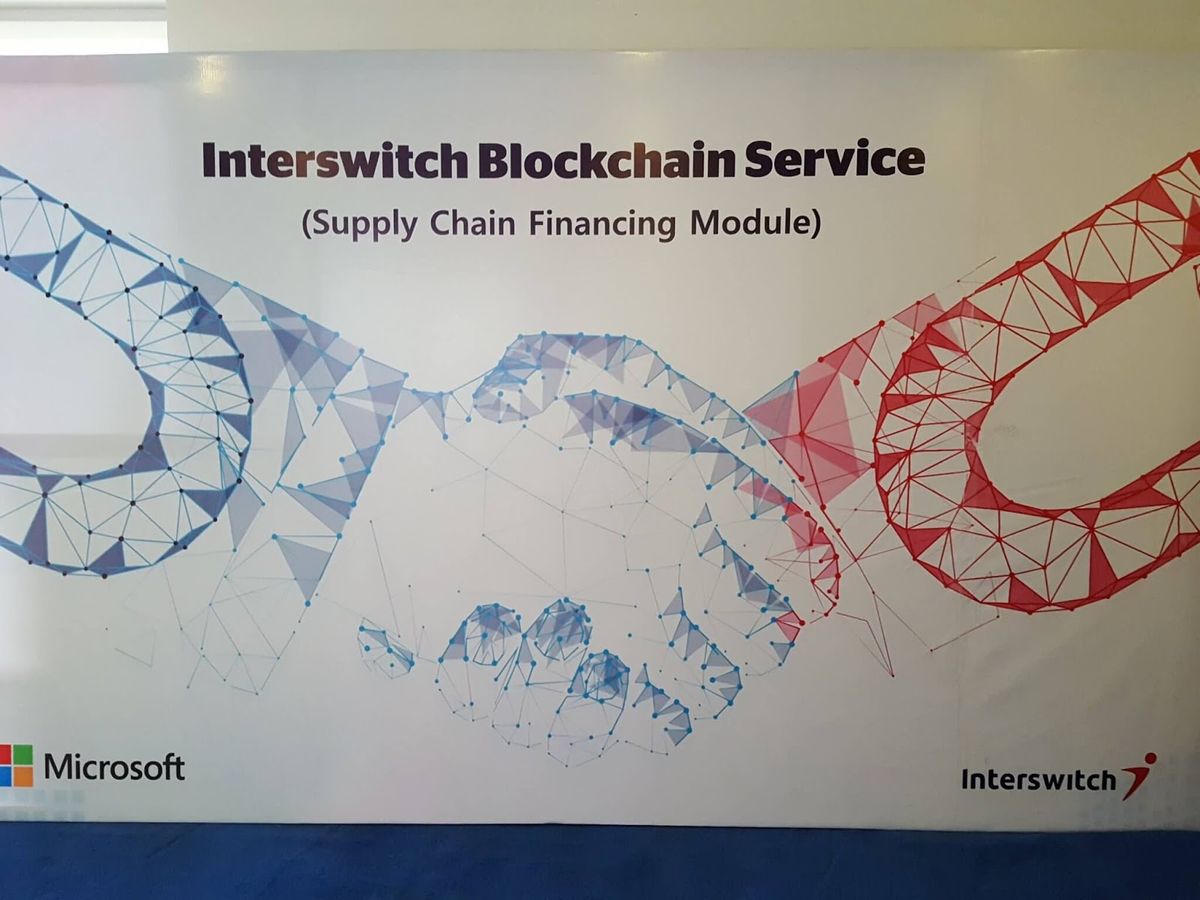Per Blockchain in Nigeria, Innovation comes before regulation as Interswitch announces Microsoft partnership

Interswitch, Nigeria’s most prominent switching company and payment processor is on a mission to create solutions that enable individuals and communities prosper across Africa. In accordance with this mission, they recently launched a Global mall feature available on its online payments platform—Quickteller. This new feature allows Nigerians pay naira for goods purchased on international online stores like Amazon. Also, friends can split the bill in a single shopping cart.
But that's not all the company has been up to.
On November 2, Interswitch announced a partnership with Microsoft to deliver a blockchain-based supply chain service.
The service had been in the pilot phase for several months with major banks— Zenith, UBA, and GTBank—and Dangote Group as part of her beta testers.
This supply chain service was built and hosted using Microsoft’s Azure Blockchain Workbench, which comes with prebuilt infrastructure for quickly experimenting with Blockchain technology.
Interswitch's target market comprises banks, corporations, small and medium enterprises (SMEs). The SMEs can access the platform through their banks.
The Divisional CEO of Payment Processing at Interswitch, Akeem Lawal said:
“The service aims to digitise the process between corporates and banks when providing trade financing to entrepreneurs and business owners in the supply chain sector.”
He added that the service would cut down the process of accessing finance by 85.6%, from three months to three weeks. This will increase entrepreneurs’ access to financing and allow them expand their businesses quickly.
Other business benefits of the blockchain application, according to Interswitch, include to:
- reduce fraud,
- remove intermediaries,
- grow revenue,
- faster settlement,
- create new partnerships, and
- provide visibility and transparency.
With these benefits, the Interswitch-Microsoft Blockchain service appears to be a win-win for all parties involved but the country's financial services regulator, CBN has reservations.
Last month, Flutterwave announced that it has integrated Ripple's blockchain–a global leader in enterprise blockchain—into its core infrastructure for payments processing across Africa. Remitr has also created a RippleNet corridor to Nigeria. What this means is that any entity (e.g bank) on the Ripple Network can send and receive money via technology via Flutterwave and Remitr's platform.
Don and Alex Tapscott, authors of Blockchain Revolution, defined blockchain as an incorruptible digital ledger of economic transactions that can be programmed to record not just financial transactions but virtually everything of value.
This definition implies that there are other use cases for blockchain technology other than just financial services.
We would not be surprised to see a Microsoft attempt to use blockchain for something else in Africa if their existing partnership with Interswitch comes through.
However for financial services, there is an elephant in the room, the Central Bank of Nigeria (CBN).
We are yet to see any policy from the CBN on the use of Blockchain technology in the highly-regulated financial sector in Nigeria.
At the recently concluded FirstBank Nigeria Fintech Summit, we reported that the CBN Director of Payment System Policy and Oversight, Musa Jimoh said that “Blockchain is a developing technology”, but they are monitoring it closely.
The apex bank had earlier warned in a circular dated January 12, 2017, that it doesn’t recognise virtual currencies (VCs) as legal tender in Nigeria. Citing "loose regulation" of VCs as a potential avenue for criminals to perpetuate money laundering acts or fund terrorism.
Yet, citizens have found several ways to trade on the different local and international cryptocurrency exchange platforms, being fully convinced of the emerging technologies potential.
We expect to continue to see a lot of private play in the financial services sector especially as it involved Blockchain technology. While, it takes the regulators some time to carry out their due diligence and formulate frameworks that protect the financial interest of citizens and the country.
Till then.






